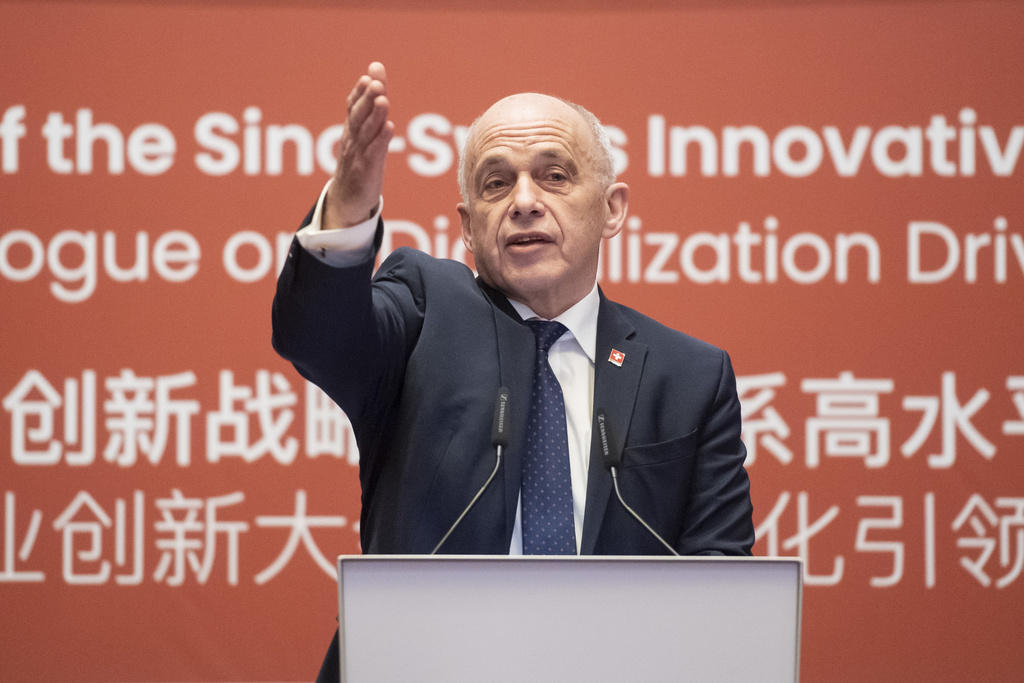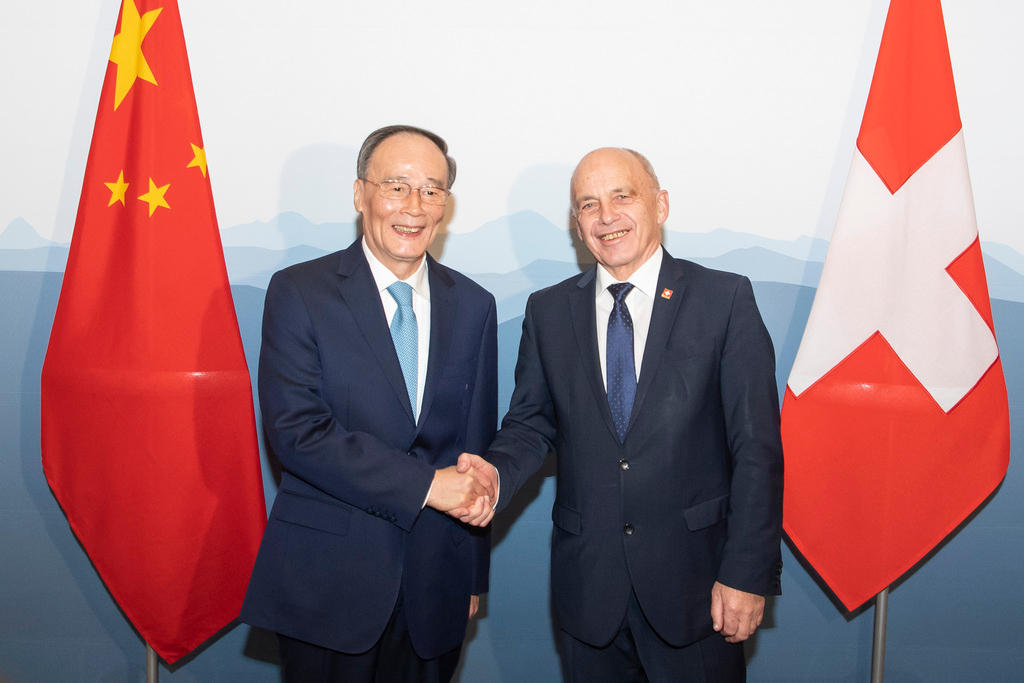Why Switzerland and China are courting each other

Ueli Maurer, who holds the rotating Swiss presidency this year, has started a seven-day visit to China, where he will sign a memorandum of understanding focusing on finance and trade. What’s in it for both countries? And why are some eyebrows being raised in parliament?
“Many Westerners may have been concerned about China’s rapid development because it’s greater than what they expected,” Maurer said in a joint interview with Chinese media in Bern on April 16. His remarks were publishedExternal link by the Chinese state-run news agency Xinhua, which reported on the positive aspects of trade ties.
“But they should respect China’s great achievements as only in this way can the two sides have a good basis for dialogue. Any attempt to close the door of conversation would be wrong,” the Swiss president continued.
As part of his visit to China this week, Maurer will attend the second Belt and Road ForumExternal link on international cooperation, “thereby supporting the contribution made by the Belt and Road Initiative (BRI) to developing relations between Asia and Europe”, the finance ministry said in a statementExternal link.
+ What is the Belt and Road Initiative?External link
Switzerland and China are set to sign a memorandum of understanding to intensify cooperation on trade, investment and project financing in third markets along the routes of the BRI.
Maurer, also Switzerland’s finance minister, said the initiative “when implemented smoothly, will bring many benefits to both the economic development and the wellbeing of people worldwide”.
“Globalisation is the key to successful global development,” he said.
Flagship Switzerland
The finance ministry said the visit aimed to deepen the “already very good” relations between Switzerland and China. Chinese President Xi Jinping, whom Maurer is set to meet on April 28, paid a state visit to Switzerland in 2017.
For China, Switzerland’s significance is above all economic, according to Ralph Pöhner, chief economist at Swiss business paper Handelszeitung.
“The Chinese are looking for leading technology and for modern economies and forms of organisation. Switzerland has a lot to offer here; certainly more than other rich European countries. Switzerland is also the first and so far only country in continental Europe to have a free-trade agreement with China,” Pöhner told swissinfo.ch.
“There’s also the fact that Switzerland is not member of the European Union. China can therefore negotiate with Switzerland without having to consider all 28 member states. Plus Switzerland enjoys a good reputation internationally,” he said.
“Switzerland is both a test site and a flagship for China.”

More
How Switzerland lost and regained its Chinese ‘friend’
For his part, Maurer added that Switzerland is a neutral and developed economy that can serve as a bridge for cooperation between countries in Europe and Asia.
“The peoples of Switzerland and China have many things in common, as they are both very humble, hardworking and intelligent,” he concluded.
Criticism and lack of strategy
Nevertheless, Maurer’s enthusiasm for improving bilateral trade relations with China has ruffled parliamentary feathers back in Bern.
Sibel Arslan from the leftwing Green Party says the economic cooperation with China is happening too quickly.
“It’s not right that economic interests are given priority when the human rights situation in China is not exactly very good,” she told Swiss public radioExternal link, SRF. “What’s more, Switzerland is missing a clear China strategy.”
That’s precisely why Maurer’s visit is important, countered Elisabeth Schneider-Schneiter from the centre-right Christian Democratic Party.
“Tricky issues can only be addressed face-to-face. The Chinese know that they have to make progress on these difficult questions – and we’re not moving on that.”

More
Minister warns of ‘strategic’ Chinese takeovers of Swiss firms

In compliance with the JTI standards
More: SWI swissinfo.ch certified by the Journalism Trust Initiative














You can find an overview of ongoing debates with our journalists here . Please join us!
If you want to start a conversation about a topic raised in this article or want to report factual errors, email us at english@swissinfo.ch.